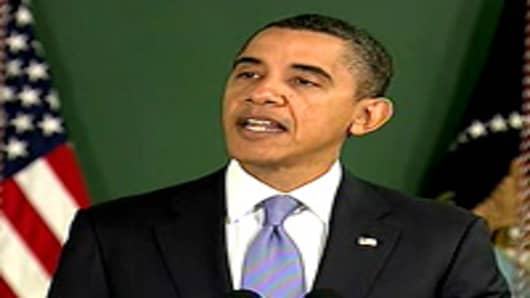President Barack Obama called for more balanced trade relations with China as a delegation from Beijing met with US officials in Washington yesterday.
The talks have been surprisingly low key, due in part to the US attention being focused on the death of Osama bin Laden and the markets' attention being focused on falling commodity prices and the euro zone crisis.
One analyst though predicts the recent fall in oil and commodity prices could turn the heat up on US/Chinese relations in the coming months.
“On the economic side, the atmosphere in the run-up to this year’s meeting has been the most positive since the financial crisis,” said Mark Williams, the senior China economist at Capital Economics, in a research note.
His point is that higher commodity prices have led China’s trade surplus to, on the surface at least, come down to less than four percent of gross domestic product, compared with 10 percent on the eve of the financial crisis.
“We doubt this will last. The speed at which the surplus has fallen over the last year can be entirely explained by the rise in commodity prices rather than any surge in real import demand,” Williams wrote.
Overnight Chinese data showed the trade surplus for April coming in at $11.4 billion, nearly four times higher than the many in the market had been expecting, in a clear sign Williams is right.
“For everything apart from commodities – including the bilateral surplus with the US – China’s surplus remains close to a record high,” he wrote.
“For this reason, the surplus is likely to rebound rapidly if commodity prices continue to decline, potentially reawakening strains with the US. Nonetheless, for now, China can argue that its economy is rebalancing,” Williams added.
The second reason tensions have eased according to Williams is the five percent rise in the yuan since the peg was dropped last year. While still not rising as fast as many in the US would want, there has been talk in recent weeks of letting the yuan rise further as a way of combating Chinese inflation.
The US Treasury has been suggesting that the yuan is rising at a real rate of around 10 percent against the dollar.
"This estimate is based on the difference between consumer price inflation in China and the US and is – we believe – misleading,” said Williams.



